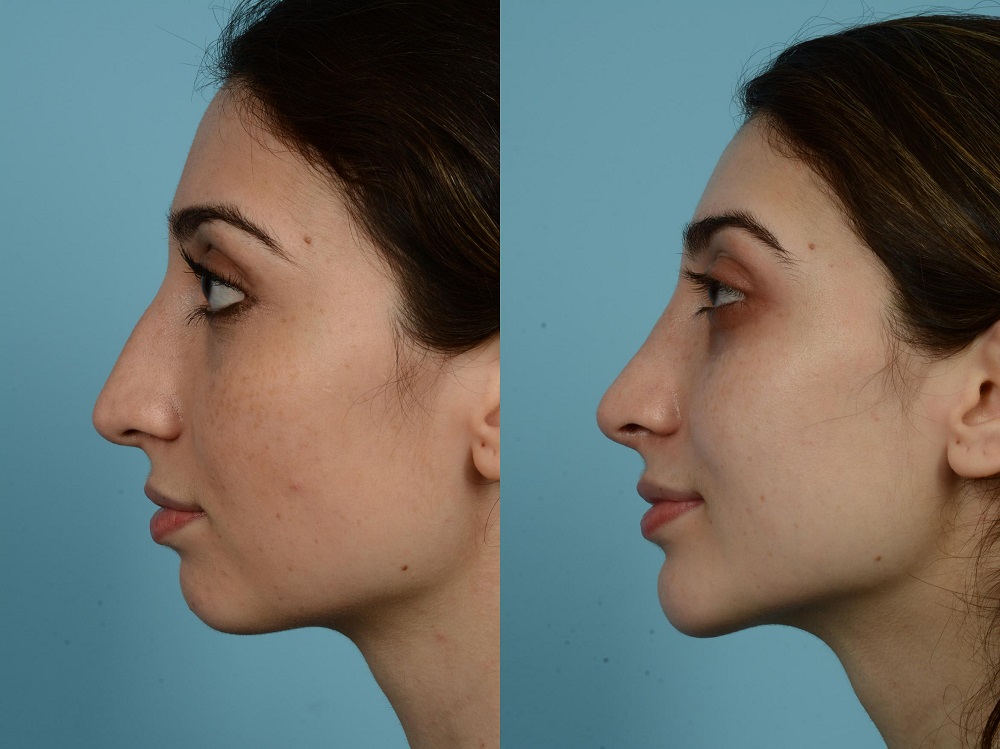

Chin Surgery Must Be Done In The Best Hospital To Avoid Complications
Everyone wants to look beautiful, maybe through applying makeup or through surgery if you are not with any specific part of your body. Chin surgery is the most common one, and if you are not happy with the shape of your chin, then you need to find the place where is best for chin surgery (เสริมคางที่ไหนดี, which is the term in Thai) and how it can be done.
What Is The Process Of Chin Surgery?
An uneven chin looks inappropriate, so you need to find the best place for this surgery. If you have a small chin and want to make it a bit elongated to make it a bit attractive. So the process is,
At first, anesthesia is done in that particular place, an incision is made outside or inside the mouth, an implant is placed under the jawline to give a distinctive look, and stitches are done and once stitched after the dressing bandage is applied to get healed quickly.
What Are Its Side Effects?
- After the surgery, you can feel a tingling sensation, creating discomfort for a few days.
- The wound could open up anytime if you don’t follow the instructions carefully and perform any strenuous activity.
- Try not to sleep while pressing your chin, as your chin will get swollen and take time to heal immediately.
- Do the dressing every alternate day to avoid infection. Applying shaving foam in those affected areas can cause adverse problems.
If you are willing to make your chin elongate by a few centimeters, but the doctor is not allowing you to do it, then it’s better not to proceed with that as it can deform your chin, and you will look different. So it’s better to consult a professional doctor to guide you accurately.
Conclusion
Where is the best for chin surgery? It depends upon the physician and the clinic as well. The physician must have the license and experience to deal with complex cases. The hospital must be clean and must have good reviews regarding this surgery. Before booking an appointment, try to review the reviews and search for the best doctor for this surgery. It has to be done efficiently without thinking about the cost. The experienced physicians will charge you high, so try to go for it. After surgery, please maintain a few things to avoid any further issues.

The Importance of Prioritizing Women’s Health: Empowering Women for a Better Future
In today’s fast-paced world, women play an integral role in various aspects of life. From balancing careers and family to making significant contributions to society, women are an undeniable force of strength and resilience. However, amidst their daily responsibilities, it is crucial to acknowledge the significance of women’s health and well-being. As per the experts doing ABA therapy in New York, by prioritizing and empowering women’s health, we can ensure a brighter and more prosperous future for everyone.
Physical health forms the foundation of overall well-being, and women’s health encompasses a unique set of challenges and considerations. Starting from adolescence, women undergo biological changes like puberty, menstruation, and pregnancy that require specialized care and attention. Regular health check-ups, including pelvic exams and mammograms, are vital in detecting potential issues such as breast cancer or reproductive health conditions.
Additionally, mental health plays an equally important role in a woman’s overall well-being. Women face a myriad of psychological challenges, including higher rates of anxiety and depression. Society often places unrealistic expectations and pressures on women, such as striving for the perfect body image or juggling multiple roles without support. Prioritizing mental health through awareness, destigmatization, and access to mental health resources is crucial for women to thrive.
Reproductive health is another essential aspect of women’s well-being. Accessible and affordable contraception, family planning services, and comprehensive sex education are key factors in empowering women to make informed decisions about their bodies and reproductive choices. By providing the necessary tools and knowledge, we empower women to take control of their reproductive health, thereby reducing unintended pregnancies and improving overall family and societal outcomes.
Another critical component of women’s health is addressing the unique challenges faced by marginalized groups. Women of color, LGBTQ+ women, and women from low-income backgrounds often face disparities in healthcare access, quality, and affordability. It is imperative to recognize these disparities and work towards creating an inclusive healthcare system that provides equitable care to all women, regardless of their background or socio-economic status.
Promoting a healthy lifestyle is essential in maintaining women’s health and preventing various chronic diseases. Encouraging regular physical activity, a balanced diet, and sufficient sleep can have profound positive effects on both physical and mental well-being. By fostering a culture of self-care and healthy habits, we can empower women to prioritize their health and lead fulfilling lives.
Furthermore, advancements in medical research and technology have paved the way for groundbreaking discoveries in women’s health. Research dedicated to understanding women-specific conditions such as endometriosis, polycystic ovary syndrome (PCOS), and osteoporosis is crucial in developing effective treatments and interventions. Supporting and funding such research initiatives is vital to improve women’s health outcomes and reduce the burden of these conditions.
Lastly, women’s health extends beyond individual well-being; it has significant societal and economic implications. When women are healthy, they are more likely to participate actively in the workforce, contribute to economic growth, and engage in community development. By investing in women’s health, we invest in a prosperous future for everyone, as healthier women create healthier families, communities, and nations.
In conclusion, prioritizing women’s health is essential for empowering women and ensuring a better future. By addressing the unique challenges faced by women, promoting physical and mental well-being, providing comprehensive reproductive healthcare, and addressing disparities, we can create a society that values and supports women’s health. When women are healthy and empowered, they can reach their full potential, making significant contributions to society and inspiring future generations. Let us work together to prioritize women’s health and create a world where every woman can thrive.

Being by the Side of an Addict Requires some Knowledge as Well
Being a friend or family means sticking by thin and thick, especially if there is an addiction issue. As addiction causes multiple changes, both physical and psychological, the person might be violent, unresponsive or completely ignorant. As they go through severe alcohol withdrawal, they would need proper support from the loved ones.
- You have no power over the decisions made by others. You could think that it would be easier for the patient to prevent relapse if they would simply let others organize your appointments, assist with job applications, or handle this or that problem. Even so, it could be real. Yet the truth is that your buddy or relative needs to develop independent coping mechanisms independent of drugs and alcohol. Although it’s crucial to offer encouragement, remember that you cannot force someone to do anything. Attempting to force the matter will just result in unneeded tension.
- Simply showing up and showing you care is key. Your desire to assist a friend or loved one who is recovering says a lot about you and how much you want them to succeed in their recovery. Just by showing up and checking in, you can make a significant difference. Invite them out for coffee or a run, come over, or send them a text. Little by little, incorporate them into your life, and ask them to do the same.
- Recognize that not everything must alter. You may still conduct a lot of the same activities you used to do with your friend or loved one. You can hang out at their place or invite them over, work out together, go grocery shopping together, or just spend time and have fun. But it is not advised to drink around them, bring them to a bar, or take them anywhere else they will have access to drugs or alcohol.

Empowering Women’s Health: Nurturing Wellness and Resilience
Introduction (50 words): Women’s health is a multifaceted domain that encompasses physical, mental, and emotional well-being. Acknowledging the unique needs and challenges women face, it becomes imperative to prioritize comprehensive healthcare and empower women to take charge of their health. This article delves into key aspects of women’s health, highlighting the importance of proactive care, self-advocacy, and holistic approaches.
Body:
- Navigating the Lifespan (100 words): Women experience distinct health milestones throughout their lives, from puberty to pregnancy, menopause, and beyond. Understanding these stages and their associated health considerations is crucial for personalized care. Providing education, support, and accessible healthcare services tailored to these specific needs can promote healthier outcomes and enhance overall well-being.
- Empowering Physical Health (100 words): Physical health is the cornerstone of women’s well-being. Encouraging regular exercise, balanced nutrition, and preventive screenings can help prevent chronic illnesses and maintain optimal health. Cultivating body positivity and embracing diverse body types also plays a pivotal role in promoting self-acceptance and fostering a healthy body image.
- Mental and Emotional Resilience (100 words): Women’s mental and emotional health can significantly impact their overall quality of life. Raising awareness about common mental health issues such as anxiety, depression, and postpartum disorders is vital. Encouraging open dialogue, reducing stigma, and providing accessible mental health resources are essential steps towards supporting women in their journey towards mental and emotional well-being.
- Sexual and Reproductive Health (100 words): Empowering women to make informed decisions regarding their sexual and reproductive health is a fundamental aspect of comprehensive healthcare. Promoting access to contraception, accurate sex education, and family planning services empowers women to take control of their reproductive choices. Additionally, ensuring easy access to prenatal care, safe childbirth practices, and postpartum support is crucial for the well-being of both mothers and their babies.
- Holistic Approaches to Women’s Health (100 words): Recognizing that women’s health extends beyond the physical realm, holistic approaches integrate various dimensions of well-being. Encouraging self-care practices, stress management techniques, and promoting work-life balance can support women in achieving overall wellness. Moreover, recognizing the impact of social determinants of health, such as socioeconomic factors and access to healthcare, is vital in addressing health disparities and promoting health equity.
Conclusion (50 words): Prioritizing women’s health involves a multifaceted approach that recognizes the diverse needs and challenges faced by women throughout their lives. By nurturing physical, mental, and emotional well-being, providing comprehensive care, and empowering women to take control of their health, we can foster a society where women thrive and lead healthy, fulfilling lives.

Empowering Women’s Health: Nurturing Holistic Well-being
Introduction (Approximately 70 words): Women’s health is a multidimensional concept that encompasses physical, mental, and emotional well-being. It is imperative to acknowledge and address the unique health concerns faced by women, allowing them to lead fulfilling lives. From reproductive health to mental wellness, this article explores various aspects of women’s health and emphasizes the importance of nurturing holistic well-being.
Body:
- Prioritizing Reproductive Health (Approximately 100 words): Reproductive health plays a vital role in a woman’s overall well-being. It involves understanding menstrual health, contraception, family planning, and the management of conditions such as polycystic ovary syndrome (PCOS) and endometriosis. By raising awareness and providing accessible healthcare services, women can make informed decisions about their reproductive health and exercise greater control over their bodies. Additionally, regular screenings for cervical and breast cancers are crucial for early detection and successful treatment.
- Mental and Emotional Well-being (Approximately 100 words): Women often face unique mental health challenges, including hormonal fluctuations, postpartum depression, and societal pressures. Prioritizing mental and emotional well-being is essential for maintaining a healthy and balanced life. Promoting self-care practices, seeking therapy or counseling when needed, and destigmatizing discussions around mental health are crucial steps. By nurturing emotional well-being, women can enhance their resilience, improve relationships, and develop a positive outlook towards life.
- Balanced Nutrition and Physical Fitness (Approximately 100 words): A nutritious diet and regular physical activity are cornerstones of good health for women. Adequate intake of essential nutrients, including calcium, iron, and vitamins, helps prevent diseases like osteoporosis and anemia. Engaging in exercise routines tailored to individual needs improves cardiovascular health, strengthens bones, and boosts mental well-being. Furthermore, maintaining a healthy body weight reduces the risk of chronic conditions such as diabetes and hypertension.
- Prevention and Early Intervention (Approximately 100 words): Regular health check-ups and preventive measures play a significant role in women’s health. Annual gynecological examinations, including Pap smears and mammograms, aid in the early detection of potential issues. Vaccinations against diseases like human papillomavirus (HPV) and hepatitis help prevent infections and related complications. Additionally, educating women about the signs and symptoms of conditions like heart disease and breast cancer empowers them to seek timely medical intervention and ensures better outcomes.
Conclusion (Approximately 50 words): Women’s health is a complex and multifaceted domain that requires a holistic approach. By prioritizing reproductive health, mental and emotional well-being, balanced nutrition, and preventive care, women can take charge of their health journeys. Empowering women with knowledge, access to quality healthcare, and support networks is essential for fostering a healthier, happier society.












